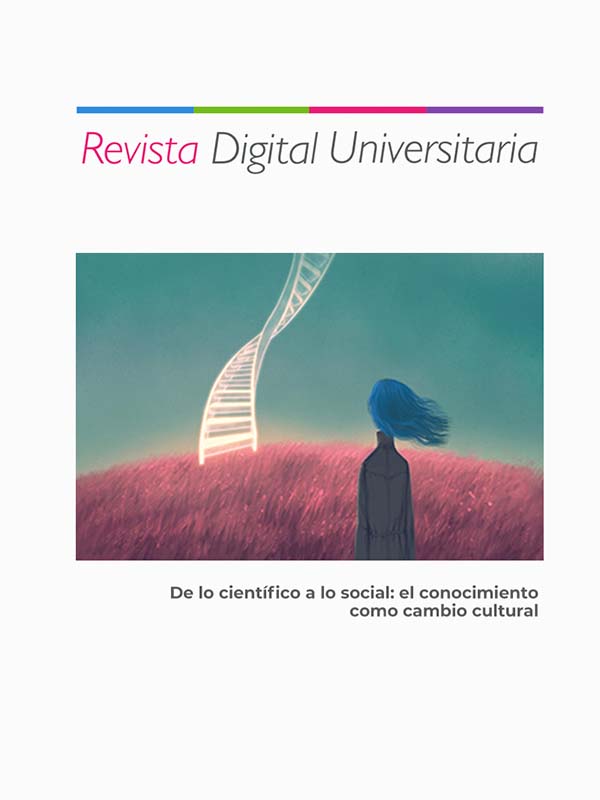Starch to the rescue: creating sustainable and biodegradable packaging
DOI:
https://doi.org/10.22201/ceide.16076079e.2025.26.1.8Keywords:
bioplastics, plastic pollution, biodegradable materials, synthetic polymers, sustainabilityAbstract
The excessive use of synthetic polymers in disposable products, such as bags and containers, leads to accumulation in landfills and water bodies, impacting the health of the environment and living organisms. Bioplastics offer a sustainable alternative, with starch standing out for its low cost and biodegradability, though it has limitations like low water resistance and poor mechanical properties. Polybutylene succinate (pbs) complements these properties, but its high cost and limited biodegradability make it less accessible. Starch and PBS blends aim to combine their advantages, enhance PBS degradation, and reduce costs, providing a more sustainable solution to plastic pollution.
References
Adewale, P., Shokrolllahi, M., y Lam, E. (2022). Starch modification for non-food, industrial applications : Market intelligence and critical review. Carbohydrate Polymers, 291(April), 119590. https://doi.org/10.1016/j.carbpol.2022.119590
Agama, E., y Bello, L. A. (2017). Starch as an emulsions stability: the case of octenyl succinic anhydride (OSA) starch. In Current Opinion in Food Science (Vol. 13, pp. 78–83). Elsevier Ltd. https://doi.org/10.1016/j.cofs.2017.02.014
Beluci, N. de C. L., Santos, J. dos, de Carvalho, F. A., y Yamashita, F. (2023). Reactive biodegradable extruded blends of thermoplastic starch and polyesters. Carbohydrate Polymer Technologies and Applications, 5. https://doi.org/10.1016/j.carpta.2022.100274
Cheng, H., Chen, L., McClements, D. J., Yang, T., Zhang, Z., Ren, F., Miao, M., Tian, Y., y Jin, Z. (2021). Starch-based biodegradable packaging materials: A review of their preparation, characterization and diverse applications in the food industry. In Trends in Food Science and Technology (Vol. 114, pp. 70–82). Elsevier Ltd. https://doi.org/10.1016/j.tifs.2021.05.017
Howard, J., Huang, A., Li, Z., Tufekci, Z., Zdimal, V., van der Westhuizen, H. M., von Delft, A., Price, A., Fridman, L., Tang, L. H., Tang, V., Watson, G. L., Bax, C. E., Shaikh, R., Questier, F., Hernandez, D., Chu, L. F., Ramirez, C. M., y Rimoin, A. W. (2021). An evidence review of face masks against COVID-19. In Proceedings of the National Academy of Sciences of the United States of America (Vol. 118, Issue 4). National Academy of Sciences. https://doi.org/10.1073/pnas.2014564118
Lambert, S., y Wagner, M. (2017). Environmental performance of bio-based and biodegradable plastics: The road ahead. Chemical Society Reviews, 46(22), 6855–6871. https://doi.org/10.1039/c7cs00149e
Nanda, S., Patra, B. R., Patel, R., Bakos, J., y Dalai, A. K. (2022). Innovations in applications and prospects of bioplastics and biopolymers: a review. Environmental Chemistry Letters, 20(1), 379–395. https://doi.org/10.1007/s10311-021-01334-4
Othman, A. R., Hasan, H. A., Muhamad, M. H., Ismail, N. ’Izzati, y Abdullah, S. R. S. (2021). Microbial degradation of microplastics by enzymatic processes: a review. Environmental Chemistry Letters, 19(4), 3057–3073. https://doi.org/10.1007/s10311-021-01197-9
Rosenboom, J. G., Langer, R., y Traverso, G. (2022). Bioplastics for a circular economy. Nature Reviews Materials, 7(2), 117–137. https://doi.org/10.1038/s41578-021-00407-8
Suchao-In, K., Koombhongse, P., y Chirachanchai, S. (2014). Starch grafted poly(butylene succinate) via conjugating reaction and its role on enhancing the compatibility. Carbohydrate Polymers, 102(1), 95–102. https://doi.org/10.1016/j.carbpol.2013.11.001
Zhang, S., He, Y., Yin, Y., y Jiang, G. (2019). Fabrication of innovative thermoplastic starch bio-elastomer to achieve high toughness poly(butylene succinate) composites. Carbohydrate Polymers, 206(October), 827–836. https://doi.org/10.1016/j.carbpol.2018.11.036
Published
Issue
Section
License
Copyright (c) 2025 Revista Digital Universitaria

This work is licensed under a Creative Commons Attribution-NonCommercial-ShareAlike 4.0 International License.

Revista Digital Universitaria es editada por la Universidad Nacional Autónoma de México se distribuye bajo una Licencia Creative Commons Atribución-NoComercial 4.0 Internacional. Basada en una obra en http://revista.unam.mx/.










